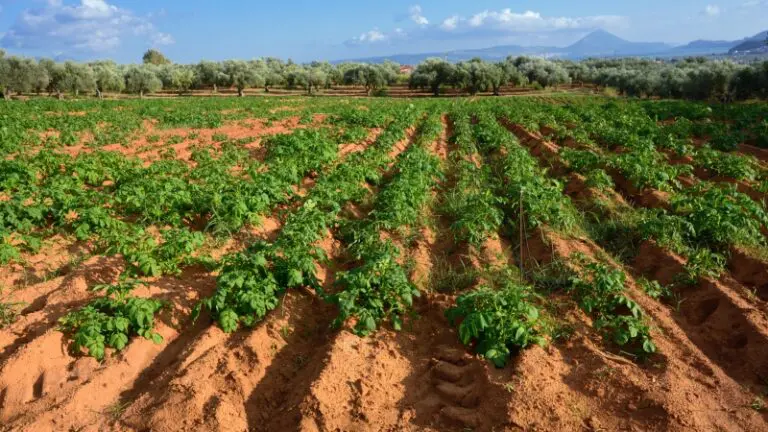Farmers worldwide face increasingly unpredictable weather, but in Africa, where the U.N. estimates 282 million people don’t have enough food, more severe flooding and drought threaten to make a dire situation worse.
Through the Vision for Adapted Crops and Soils (VACS), the United States, the African Union and the U.N. Food and Agriculture Organisation (FAO) are working with the private sector and research institutions to adapt crops to withstand climate change and build a more secure food supply for Africa.
“Agriculture faces an historically unprecedented combination of challenges,” U.S. Special Envoy for Global Food Security Cary Fowler said at the Agriculture Innovation Mission for Climate Summit May 9 in Washington. Addressing those challenges requires fertile soils and resilient crops adapted to withstand climate change, he added.
To drive investment toward traditional African crops that are vital for nutrition and can thrive in Africa’s soils, VACS, launched on February 1, will:
- Identify the most important and nutritious crops in each of the African Union’s five subregions.
- Assess the nutritional and socioeconomic impacts of climate change on those crops.
- Mobilize public and private resources for crop adaptation through plant breeding and other investments.
- Collect, map and analyse soil data to determine how to improve soil quality and increase crop yields.
The United States is taking numerous steps to address the global food crisis driven by extreme weather and conflict, including Russia’s brutal war against Ukraine, which has destroyed farmland in one of the world’s major agricultural exporting countries.
At the U.S.-Africa Leaders Summit in December 2022, President Biden announced more than $2.5 billion in emergency food security aid to Africa, part of $2.76 billion in U.S. funding to address global food insecurity.
During the 27th Conference of the Parties to the U.N. Framework Convention on Climate Change (COP27) in Egypt in November 2022, Biden announced more than $150 million to accelerate adaptation and resilience across Africa. The funding, through the President’s Emergency Plan for Adaptation and Resilience (PREPARE), supports numerous initiatives to improve food security through climate-resilient agriculture.
Speaking at the February 1 VACS launch, Fowler said scientific research has overlooked certain nutritious crops that targeted research and investment could make more productive in Africa. There is an “urgent need to develop crops that are prepared to withstand the effects of climate change and the agricultural productivity demands of a growing population,” he said.
At a May 19 workshop in Rome, VACS convened farmers, as well as nutritional, agricultural and climate experts who selected approximately 60 candidate crops, based on factors including nutrition, breeding potential, economic marketability, geography and soil type. The final collection of crops selected for the program will be subject to further analysis, including modelling of expected climate impacts over the next 30 years.
The United States has pledged an initial $100 million for VACS to map healthy, fertile soils that can retain water, resist drought conditions and yield more nutritious crops. The investment will also help identify crop varieties that can better withstand climate impacts, including higher temperatures, extreme weather, and greater pest and disease pressure.
Speaking at the May 9 summit, African Union Commissioner for Rural Economy and Agriculture Josefa Sacko called VACS “very important for Africa in our efforts to adapt to climate.” She called for African institutions to play a significant role in the research effort.
“We need to feed our population. We need to feed Africa,” Sacko said. “So it’s very important that we come [up] with adapted crops so that we can continue our journey.”











